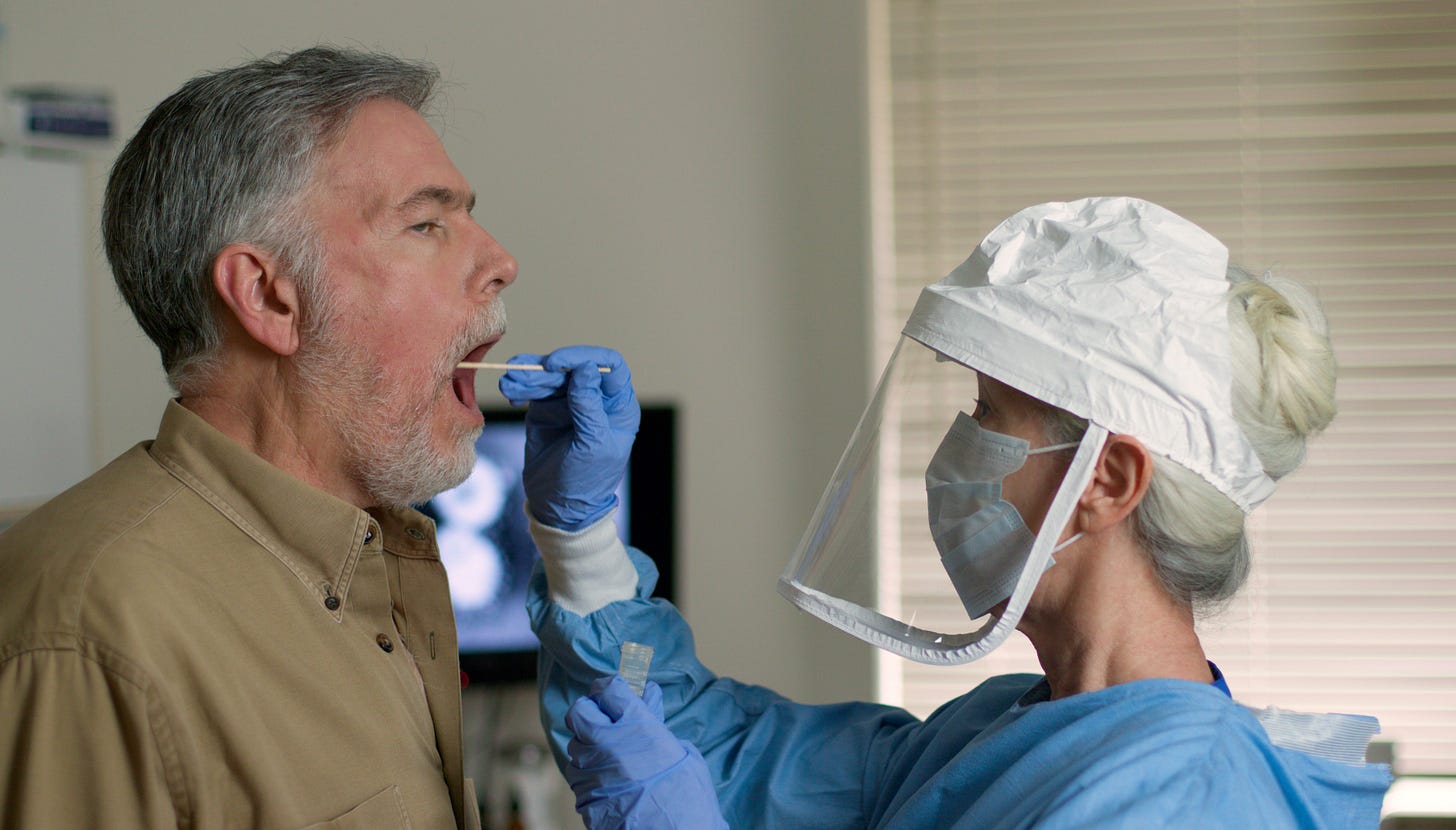How did Canada do on COVID? What's the plan to find out?
A health minister promised a "full investigation" at the "appropriate time." Well...
Here’s Patty Hajdu in April, 2021, after then-Conservative leader Erin O’Toole, who was heading toward a national election campaign, promised a national public inquiry into “every aspect of the government’s pandemic response.” Hajdu was the health minister. Reporters asked for her reaction. She said:
“We are still in a crisis and so our focus remains right now on getting Canadians and Canada through this global health crisis… And when the time is right, our government will be very open to examining very thoroughly the response of this country to the COVID-19 crisis.”
I thought I’d check in. We are in less of a crisis now. The World Health Organization ended its designation of COVID-19 as a “public health emergency of international concern” in May. The Biden administration in the U.S. announced at the end of January that it would do the same. Although I have more Moderna in my blood than I used to have beer, I caught COVID several weeks ago for the second time while traveling. It was unpleasant but it ended quickly and life goes on.
Health Canada attributes more than 52,000 deaths to COVID, which would make it the largest killer of Canadians since the Second World War (COVID killed more Canadians than the war, but a smaller share of the population). Canada ranks lower in deaths per capita than many peer countries, so in many ways it has a good story to tell about how it rode out the pandemic. Still, it would have been good to shave, say, 10,000 deaths off that total. Better still to work on ensuring the next bug, with unpredictably different characteristics, doesn’t kill twice or five times as many.
The next really big crisis might not even be a virus. The events of the week suggest, with little subtlety, that weather could be a thing. It’s possible to imagine other large sudden assaults against business as usual.
Public health crises, climate catastrophes, public-order emergencies — these fall into that unloved quadrant of the Eisenhower Matrix designated “important but not urgent.” They are, eternally, the sort of thing decision-makers hope they can worry about later. “Later” usually feels like it’ll never come. But it came in 2020 and we’ll be sorting through the results for decades.
There is some appetite for a lessons-learned exercise. Indeed the Institute for Research on Public Policy, a venerable Montreal-based think tank, has planned a conference on Resilient Institutions: Learning From Canada’s COVID-19 Pandemic next week in Ottawa. Six federal deputy ministers will speak, as will three former provincial deputy ministers, former Nova Scotia premier Stephen McNeil, Erin O’Toole, and Theresa Tam, whom you know. I’ll be attending. I may even write, although the conference is held under Chatham House Rules, which means participants can report what’s said but not who said it or where they work. This tends to encourage more relaxed conversation, but makes it hard to write engagingly about what happened. So we’ll see.
Meanwhile the IRPP, for all its valiant effort, isn’t the government of Canada. What’s up with the government of Canada? I asked Jean-Yves Duclos’s office on Tuesday. Duclos is the current health minister, Hajdu’s successor. I asked whether some “stocktaking of government action on COVID” was in the works, along lines similar to what Hajdu suggested two years ago.
The person at Duclos’s office, whom I believe is honestly trying to get me an answer, replied, “There’s ongoing internal review being done by the Public Health Agency of Canada, in addition to external, independent reviews of GPHIN and by the Auditor General.” The independent review of GPHIN, Canada’s infectious-disease early-warning system, was published in 2021. The auditor general has published a suite of evaluations of different aspects of the COVID response. They promised to get back to me on whether there’s anything bigger, more elaborate or more complete. That was Tuesday. They wrote back on Wednesday expressing hopes to have an answer by Thursday. While I was writing this piece, I received that answer. I’ll print it below in its entirety. First, a couple of paragraphs of background.
This post is about 4,000 words long, and 80% of it lies below this paywall. A subscription to this newsletter costs less than half as much as a stupid blue checkmark on your Twitter account, and I daresay it’s better for you. It’s certainly better for me.
Keep reading with a 7-day free trial
Subscribe to Paul Wells to keep reading this post and get 7 days of free access to the full post archives.




